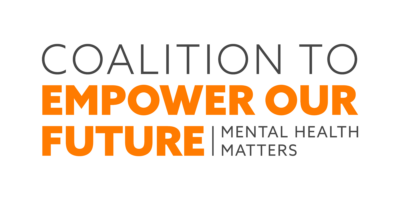New Yorkers want a comprehensive approach to youth mental health — now | Opinion
Glen Weiner
Special to the USA TODAY Network
Sept. 26, 2025, 4:08 a.m. ET
The new school year brings a mix of emotions to my house. My kids, like many, are excited to see their friends, play sports, engage in activities and clubs and even take new classes. But at the same time, kids — and, by extension, their parents — are experiencing a new set of anxieties. Friend groups change; some kids get left out or are bullied. Academic pressures build — as do fears around making teams or getting the role they want in an activity or club. All the while, the world and their place in it grow bigger each year.
This mix of emotions that so many families experience serves to highlight just how deeply complex youth mental health is and why we need to keep talking openly about it. To better understand these issues, the Coalition to Empower our Future, or CEF, has been digging into how parents and voters think about youth mental health.
Before the start of the school year, CEF surveyed parents and voters in New York and across the country to gain a better understanding of their views on youth mental health challenges and how we can come together to address them. As it turns out, they view youth mental health as a serious and growing concern. Almost seven in 10 New Yorkers say they personally know kids who are struggling with mental health. State data helps further illustrate the challenge: roughly 28% of individuals served by the New York State public mental health system are under age 21.
A majority of New York respondents — six in 10 — also said their communities don’t have enough resources to support youth mental health. This gap in access to resources tells us we have our work cut out for us.
New Yorkers surveyed point to a wide range of challenges that can affect kids, from bullying and peer pressure to instability at home, social media, substance use, to exposure to violence. They reject a one-size-fits all approach to solving things, so not surprisingly, nearly eight-in-10 prefer a comprehensive approach to the youth mental health challenge to one that narrowly focuses on access to phones.
The good news here is that there is clear, broad agreement on how to tackle this challenge. More than nine-in-10 parents and voters said creating safe, supportive school environments, improving access to care and providing parents with better tools and resources are critical steps forward. Voters and parents understand that without providing help for parents, teachers, and other adults in the community, kids will be left to navigate these challenges alone.
Working with our coalition partners and many allies across the country has given me a front-row seat to some of the incredible work underway to create support systems for young people. This work is happening at schools, in student-led spaces, within faith organizations, through afterschool and mentorship programs, via mental health literacy work and so much more. We need more conversations that bring all these efforts into the fold.
New York needs comprehensive approaches to kids’ mental health
A theme I keep hearing about, and that I wholeheartedly subscribe to as a parent raising kids in New York, is this notion that each child’s mental health experience is unique. The research confirms it: around nine in 10 parents agree that this is the case. And even stronger majorities agree that if we acknowledge that every young person’s experience is unique, that could actually help improve youth mental health and wellbeing. As one New York voter who is also a parent put it, “If we only tackle one issue, that won’t help every child. No two children are the same.”
We have an urgent need for a comprehensive approach to the youth mental health challenge. Although this research reaffirms a grim backdrop that we already see and feel (that youth mental health is in a bad place, and not getting better), it also illuminates an incredible opportunity before us: that there is momentum to have this conversation.
Youth mental health is an issue that — no matter what your politics are or where you live — people can agree is too important to get wrong. So, let’s keep working to convene an inclusive conversation that brings together families, educators, young people, and communities to address the many dimensions of youth mental health.
Glen Weiner is the executive director of the Coalition to Empower our Future. He lives with his family in Westchester County.

